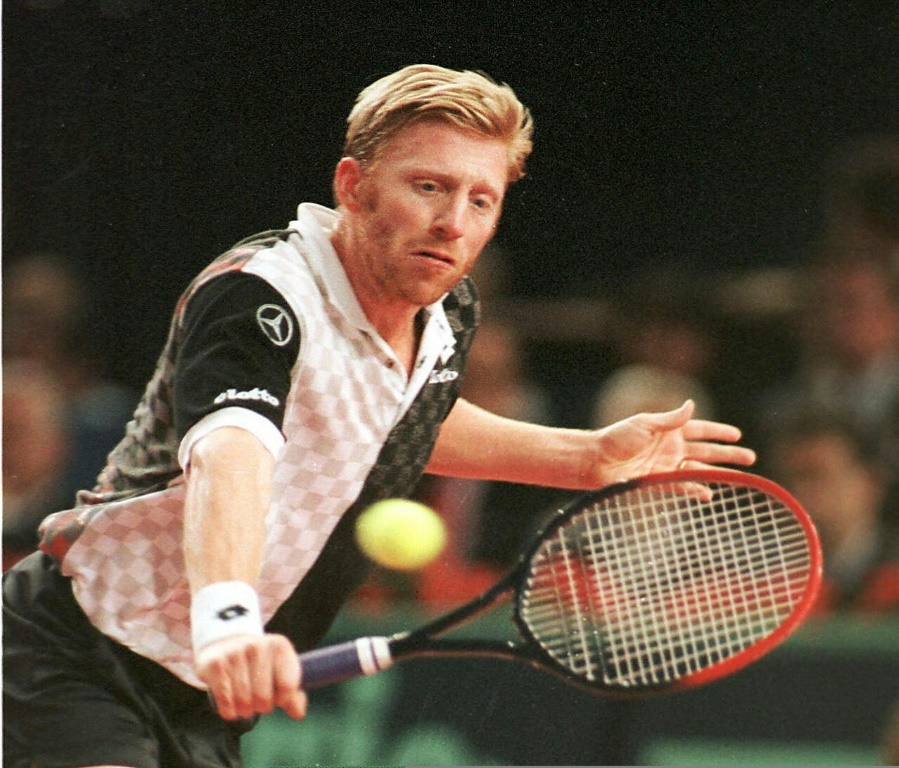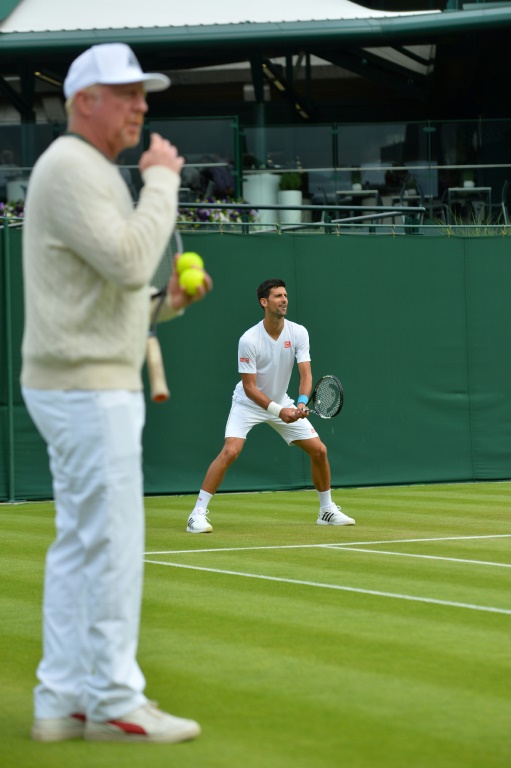Boris Becker became an overnight sensation when he won Wimbledon as an unknown teenager but personal and financial troubles have dogged him since he hung up his racquet.

Victory for the 17-year-old German at the All England Club in 1985 made him the youngest male player ever to win the tournament and was the start of an enduring love affair with the Centre Court crowd.
Nicknamed “Boom, Boom” for his ferocious serve, he won Wimbledon again the following year and lifted four more Grand Slam trophies in a sparkling career that brought him 49 singles titles and career earnings of $50 million.
Becker retired from playing in 1999 but remained a high-profile figure in the game with a commentary job for the BBC, before switching paths to coach Novak Djokovic to six Grand Slam titles between 2014 and 2016.
But despite the riches he earned during his career, he was declared bankrupt in 2017.
Now the 54-year-old is beginning a jail sentence in Britain after being found guilty of hiding £2.5 million ($3 million) worth of assets and loans to avoid paying his debts.
Born in Leimen in south-west Germany in November 1967, Becker took up tennis as a child when his father built a tennis centre in the town.
The teenager turned professional in 1984 and caught the world’s imagination a year later by beating Kevin Curren in the Wimbledon men’s final at the tender age of 17 years and seven months.
The towering red-headed phenomenon captivated crowds with his explosive serve-and-volley tennis, not afraid to dive full-length for the ball on the Wimbledon grass.

He retained his title the following year, beating Ivan Lendl in the final, and added a third Wimbledon crown when he defeated Stefan Edberg in the 1989 final.
Becker also won the US Open in 1989 and the Australian Open in 1991 and 1996, while twice leading Germany to Davis Cup glory.
He became world number one following his 1991 triumph in Melbourne.
His former manager, the moustachioed Romanian businessman Ion Tiriac, described Becker in his early years as “the most natural, crystal-clear youngster I ever saw”.
“He didn’t know how to lie, didn’t need to lie, didn’t need to find excuses or hype, or cry when he was losing,” he said. “That’s what made human beings around the world identify with him.”
Some observers say his separation from Tiriac in 1993 deprived Becker of the firm hand that had guided his early career.
– Tangled private life –
The German’s first autobiography “The Player”, released in 2003, made global headlines with its booze-soaked tales of luxury hotels and a string of female conquests.
Becker’s tangled private life has kept him in the headlines since he retired from playing, including a daughter conceived in a brief but now famous encounter with a Russian woman at a London restaurant in 1999 while his then wife, Barbara, was pregnant.
He divorced Barbara in 2001 and married Dutch model Sharlely ‘Lilly’ Kerssenberg eight years later in a high-profile event in Switzerland that was broadcast on German television, but the couple separated in 2018.
In 2002, a court in Munich sentenced Becker to a two-year suspended prison sentence and fined him for tax evasion.
He was declared bankrupt in 2017 over money owned to Arbuthnot Latham bank.
In a surprising twist, he claimed he was entitled to diplomatic immunity from legal proceedings because of his role as a sporting ambassador for the Central African Republic but abandoned that attempt.
His barrister, Jonathan Laidlaw, said at the time of the bankruptcy he was too “trusting and reliant” on his advisers.
Judge Deborah Taylor on Friday sentenced Becker, who lives in Britain, to two and a half years behind bars, of which he will serve half, at Southwark Crown Court, saying he had lost his “career and reputation”.
She said while he had doubtlessly been humiliated by the proceedings, “there has been no humility”.









